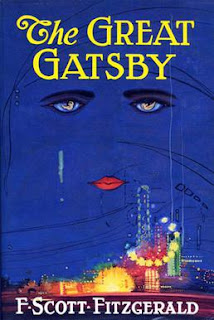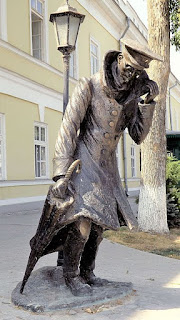Interculturalruen.mave.digital - Russian-English mp3 podcasts- Русско-английские mp3-audio-разговорники и аудиокниги
четверг, 29 августа 2019 г.
Nineteen Eighty-Four by George Orwell-chapter 1-rus-eng mp3 parallel text- Русско-английские mp3 разговорники и аудиокниги
Русско-английские mp3 разговорники и аудиокниги
среда, 28 августа 2019 г.
The Great Gatsby by Scott Fitzgerald-chapter 1-rus-eng mp3 parallel text- Русско-английские mp3 разговорники и аудиокниги
Русско-английские mp3 разговорники и аудиокниги
Russian-English Audiobooks-VK Playlist
The Great Gatsby by Scott Fitzgerald-chapter 1-rus-eng mp3 parallel text.mp3PDF+MP3
The Great Gatsby is a 1925 novel written by American author F. Scott Fitzgerald that follows a cast of characters living in the fictional towns of West Egg and East Egg on prosperous Long Island in the summer of 1922. The story primarily concerns the young and mysterious millionaire Jay Gatsby and his quixotic passion and obsession with the beautiful former debutante Daisy Buchanan. Considered to be Fitzgerald's magnum opus, The Great Gatsbyexplores themes of decadence, idealism, resistance to change, social upheaval and excess, creating a portrait of the Roaring Twenties that has been described as a cautionary[a] tale regarding the American Dream.[1][2]
среда, 21 августа 2019 г.
In the ravine by Anton Chekhov - part 1 -rus-eng mp3 parallel text- Русско-английские mp3 разговорники и аудиокниги
Русско-английские mp3 разговорники и аудиокниги
Russian-English Audiobooks-VK Playlist
In the ravine by Anton Chekhov - part 1 -rus-eng mp3 parallel text.mp3PDF+MP3
In the Ravine" (Russian: В овраге, romanized: V ovrage) is a 1900 story by Anton Chekhov first published in the No.1, January issue of Zhizn magazine.
четверг, 15 августа 2019 г.
On official business by Anton Chekhov- rus-eng mp3 parallel text- Русско-английские mp3 разговорники и аудиокниги
Русско-английские mp3 разговорники и аудиокниги
Russian-English Audiobooks-VK Playlist
On official business by Anton Chekhov- rus-eng mp3 parallel text.mp3
PDF+MP3On Official Duty" (Russian: По делам службы, romanized: Po delam sluzhby) is an 1899 short story by Anton Chekhov.
суббота, 10 августа 2019 г.
A medical case by Anton Chekhov- rus-eng mp3 parallel text- Русско-английские mp3 разговорники и аудиокниги
Русско-английские mp3 разговорники и аудиокниги
Russian-English Audiobooks-VK Playlist
A medical case by Anton Chekhov- rus-eng mp3 parallel text.mp3
PDF+MP3A Doctor's Visit" (Russian: Случай из практики, romanized: Sluchai iz praktiki) is an 1898 short story by Anton Chekhov, also translated as "A Case History".
пятница, 9 августа 2019 г.
About love by Anton Chekhov- rus-eng mp3 parallel text - Русско-английские mp3 разговорники и аудиокниги
Русско-английские mp3 разговорники и аудиокниги
Russian-English Audiobooks-VK Playlist
About love by Anton Chekhov- rus-eng mp3 parallel text.mp3PDF+MP3
About Love" (Russian: О любви, romanized: O lyubvi) is 1898 a short story by Anton Pavlovich Chekhov. The third and final part of the Little Trilogy, started by "The Man in the Case" and continued by "Gooseberries".
The Gooseberries by Anton Chekhov- rus-eng mp3 parallel text- Русско-английские mp3 разговорники и аудиокниги
Русско-английские mp3 разговорники и аудиокниги
Russian-English Audiobooks-VK Playlist
The Gooseberries by Anton Chekhov- rus-eng mp3 parallel text.mp3
PDF+MP3Gooseberries" (Russian: Крыжовник, romanized: Kryzhovnik) is an 1898 short story by Anton Chekhov, the second one in what has later become known as 'The Little Trilogy', along with "The Man in the Case" and "About Love"...[A]pparently a happy man only feels so because the unhappy bear their burden in silence, but for which happiness would be impossible. It is a general hypnosis. Every happy man should have some one with a little hammer at his door to knock and remind him that there are unhappy people, and that, however happy he may be, life will sooner or later show its claws, and some misfortune will be fall him—illness, poverty, loss, and then no one will see or hear him, just as he now neither see's nor hears others" (Ivan Ivanovich).
четверг, 8 августа 2019 г.
The Man in a case by Anton Chekhov - rus-eng mp3 parallel text- Русско-английские mp3 разговорники и аудиокниги
Русско-английские mp3 разговорники и аудиокниги
Russian-English Audiobooks-VK Playlist
PDF+MP3The Man in a case by Anton Chekhov - rus-eng mp3 parallel text.mp3The Man in the Case" (Russian: Человек в футляре, romanized: Chelovek v futlyare) is an 1898 short story by Anton Chekhov, the first part of what has been later referred as The Little Trilogy, along with "Gooseberries" and "About Love".
The House with the Mezzanine by Anton Chekhov- rus-eng mp3 parallel text- Русско-английские mp3 разговорники и аудиокниги
Русско-английские mp3 разговорники и аудиокниги
Russian-English Audiobooks-VK Playlist
The House with the Mezzanine by Anton Chekhov- rus-eng mp3 parallel text.mp3PDF+MP3
The House with the Mezzanine" (Russian: Дом с мезонином, romanized: Dom s mezoninom) is an 1896 short story by Anton Chekhov, subtitled (and also translated as) "An Artist's Story" (Рассказ художника, Rasskaz khudozhnika).
среда, 7 августа 2019 г.
Uncle Vanya by Anton Chekhov rus-eng parallel text- Русско-английские mp3 разговорники и аудиокниги
Русско-английские mp3 разговорники и аудиокниги
Russian-English Audiobooks-VK Playlist
Uncle Vanya by Anton Chekhov -rus-eng parallel text.mp3
PDF+MP3
See also
Vanya on 42nd Street is a 1994 film directed by Louis Malle
based on the play Uncle Vanya by Anton Chekhov
Don’t be surprised if, on going to the Vakhtangov Theatre to see Uncle Vanya, you don’t recognize the familiar characters or if well-known lines take on a different connotation. No, Rimas Tuminas hasn’t committed an act of vandalism, he has not re-written the text, nor has he abridged it. He just sight-read it as if unaware there had been interpreters before him. There is nothing usual, beautiful, familiar. This is not the Chekhov we expect: there is no country house surrounded by garden, no cosy armchairs, table laid for a meal with lace cloth and bubbling samovar, no atmosphere of a family home in which several generations have lived….What we are given is an empty space from which life has departed, a theatre space with grey slips, a plaster of Paris lion – a symbol of Petersburg, perhaps the ancestor who built the house came from there, a workbench made out of rough boards, an old sofa, several chairs of different colours…
The director has freed the stage of the trappings of domesticity, leaving a battle field for passions, broken illusions, dashed hopes.
As seen by Tumanis and brought to life by the actors, Chekhov’s characters live in a world of colliding ambitions, of philosophizing, bouts of hard work and inertia, they are both givers and takers. They are so different and yet so alike – they are all failures. Why? We will look into this at a leisurely pace, from scene to scene, dialogue to dialogue, quarrel to quarrel, investigating moments of coming clean and moments of dissipation.
Chekhov’s work has been seen as a forerunner to the theatre of the absurd. His characters say one thing, do something else and think something totally different to what they say and do. Tuminas’ Uncle Vanya is about what Chekhov’s characters think and what they admit to only at moments of emotional turmoil. They are at times tongue-tied, like Uncle Vanya, or over-brutal like Astrov. But their revelations break out of them frenetically, just as a man breaks out of a stuffy room into the open air.
Director and cast love their characters, who are so different, lonely, at times so ludicrously absurd. Yes, absurd.
Anton Chekhov referred to all his plays as comedies. Directors and audiences found it hard to understand why these stories full of suffering, understatement, always ending on a hauntingly sad note – were comedies. This is not the first time Rimas Tuminas has produced Chekhov, his The Three Sisters and The Cherry Orchard won him acclaim from public and critics. For him, these plays by a remarkable dramatist represent a field for experiment, for probing to the bedrock, a justification of the genre.
Each production by Tuminas brings him closer to the meaning of this enigmatic word comedy, which is so contradictory to the context of the plot. Here Pushkin’s words are apposite: “High comedy is not based solely on laughter, but on development of character and…often comes close to tragedy”.
Подписаться на:
Комментарии (Atom)
Страницы
- Zeno.fm - InterculturalRUEN radio- Прямой эфир
- LIVE 96kbs mp3 24/7 stream - InterculturalRUEN radio
- Zeno.fm player - InterculturalRUEN radio
- interculturalruen.mave.digital
- Russian World Citizens
- Mixcloud
- VK
- Youtube playlist
- Rus-Deu mp3 parallel texts
- Visual neoclassical Omdaru radio
- Zoom English Coaching with Vlad Vorobev- от 12 до 36 ак.ч в зуме всего за 7200 рублей- Активируем 500–1500 речевых английских моделей за полтора месяца!
- InterculturalRUEN radio - Radiofon.net
- Mytuner-radio.com - InterculturalRUEN radio
Страницы
- Главная страница
- Buy all my Intercultural RU-EN mp3 audio podcasts - Russian-English mp3 phrasebooks-audiobooks + pdf-doc-txt-sources - Купите все мои русско-английские подкасты- скачайте mp3+pdf-txt-doc-источники !
- Vlad Vorobev- автор Win-Win radio, делового подкаста Win-Win News, коуч по интервью на русском и английском- Смотрим фильмы и активируем в зуме до 500 речевых английских моделей в месяц
Архив блога
-
▼
2019
(86)
-
▼
августа
(10)
- Nineteen Eighty-Four by George Orwell-chapter 1-ru...
- The Great Gatsby by Scott Fitzgerald-chapter 1-rus...
- In the ravine by Anton Chekhov - part 1 -rus-eng m...
- On official business by Anton Chekhov- rus-eng mp3...
- A medical case by Anton Chekhov- rus-eng mp3 paral...
- About love by Anton Chekhov- rus-eng mp3 parallel ...
- The Gooseberries by Anton Chekhov- rus-eng mp3 par...
- The Man in a case by Anton Chekhov - rus-eng mp3 p...
- The House with the Mezzanine by Anton Chekhov- rus...
- Uncle Vanya by Anton Chekhov rus-eng parallel text...
-
▼
августа
(10)
Topics
2000 words
3-D reading
активная грамматика
активный словарный запас
Булгаков
Влад Воробьев
Гивенталь
коучинг
начинающие
поэзия
речевые модели
речевые формулы
русско-английские параллельные тексты
тематический словарь
тренинг
Улицкая
Abundance
activator
active grammar
active vocabulary
Advanced grammar
advanced vocabulary
affirmation
AI
Akhmatova
Alcyone
Alexander Men'
aliens
American English
American literature
Andrey Kneller
animation
Apple Podcasts
Archangel Metatron
Archangel Michael
Archetype
Arkaim
art
Atman
Audio
audiobooks
australian literature
awe
Beatitudes
beauty
beginners
Bible
Boosty.to/Omdaru
british animation
British literature
Brodsky
Buddha
Bulgakov
Bunin
business english
Business grammar
business meeting
business quotes
business trip
Business usage
business vocabulary
Byrne
Caiaphas
Carroll
Cassiopeia
Cayce
Chaitanya
Chambers Essential English grammar
channeling
ChatGPT
Chekhov
Chico Xavier
childen
children's literature
christianity
Christmas
Cicero
claude.ai
clichees
coaching
Collins Cobuild
collocations
commandments
common errors
comparative grammar
Consciousness
Crimea
death
DeepSeek
dialogues
discussion
Dispenza
Dmitry Bykov
Dostoevsky
Dovlatov
Dream Media English Club
economics
ego
elementary
Emily Wilson
emotions
english audiobooks
english grammar
english literature
enlightenment
essay
extraterrestrial civilizations
Family English
fantasy
fear
feelings
financial energy
frequent words
Gabriel
Genesis
Germany history
god
Goddard Neveille
good luck
Google Podcasts
grammar
grammar patterns
happiness
Harry Potter
Higher Self
Holy Spirit
Homer
Household
human origins
idioms
immortality
inspirational quotes
Intelligent Business
Intercultural RU-EN
intermediate grammar
Ivan Bunin
James Falen
Jane Roberts
Jesus
Jesus Christ
Joe Vitale
Joehle
John O'Donohue
John O’Donohue
John of Kronstadt
John Randolph Price
Josiah
Judas
kids
King David
Krishna
Longman
love
Lucifer
Lyudmila Ulitskaya
Market Leader
Mayakovsky
meditation
mistakes
mixcloud.com/interculturalruen
modern translations
Moses
motivational quotes
Nobel lecture
Nobel prize
nonfiction
Omdaru English Media Club
Onegin
Orwell
Osip Mandelstam
painting
parables
Pasternak
Paul
Peppa Pig
phrasal verbs
phrase books
Pilate
Plato
podcasts
poetry
post-apocalyptic novel
prayer
pre-intermediate
prepositions
Prophet Enoch
Prosperity
Psalms
Pushkin
Putinism
quotations
quotes
Radio-Serendipity
reincarnation
Renan
Roman Empire
Rowling
Russian
russian archetype
russian collocations
russian frequent words
russian grammar
russian history
russian literature
russian particles
russian poetry
Russian politics
Russian World Citizens Project
russian-english audibooks
russian-english podcasts
Sathya Sai Baba
scientific discussion
Serendipity
Seth
short story
Skype English
slang
SLOVO
Socrates
soul
Soviet life
soviet sci-fi
speech formulas
speech patterns
spirit
spiritism
spirituality
spoken english
Spotify
Sri Chinmoy
Stephen Fry
stoicism
Strugatsky
students
subjunctive mood
Tarkovsky
tenses
Tests
The Gospel of John
The Gospel of Matthew
the Idiot
The New Testament
The Secret
theatre
Thought
thriller
time
Tolkien
Tolstaya
Tolstoy
topical dictionary
tourism
True Self
Tsvetaeva
tyranny
UFO
universe
Upper-intermediate grammar
Urantia
Usage
vocabulary
Vysotsky
Walsch
Williamson
Woland
Yahweh
Zhivago
Zoroaster














